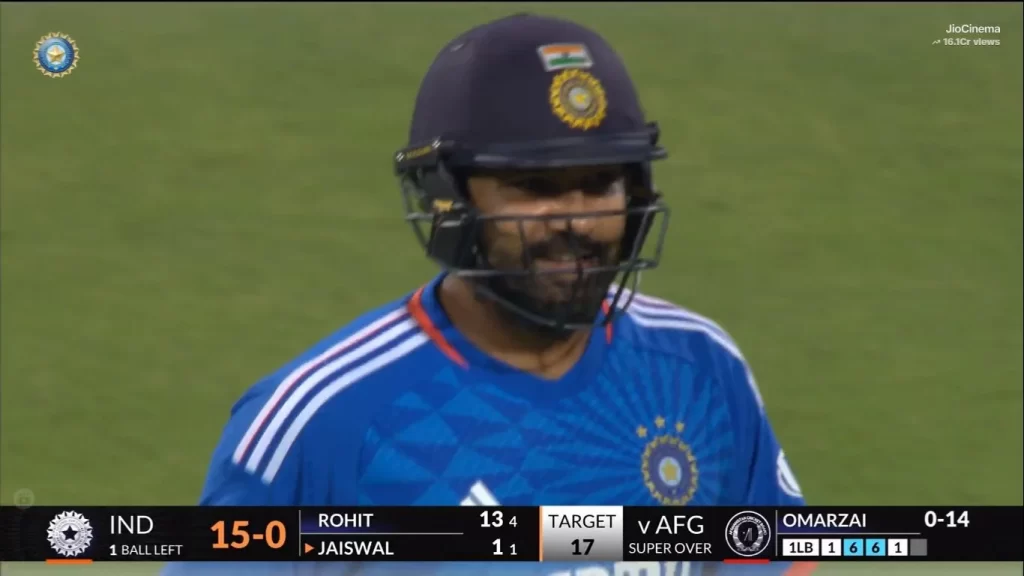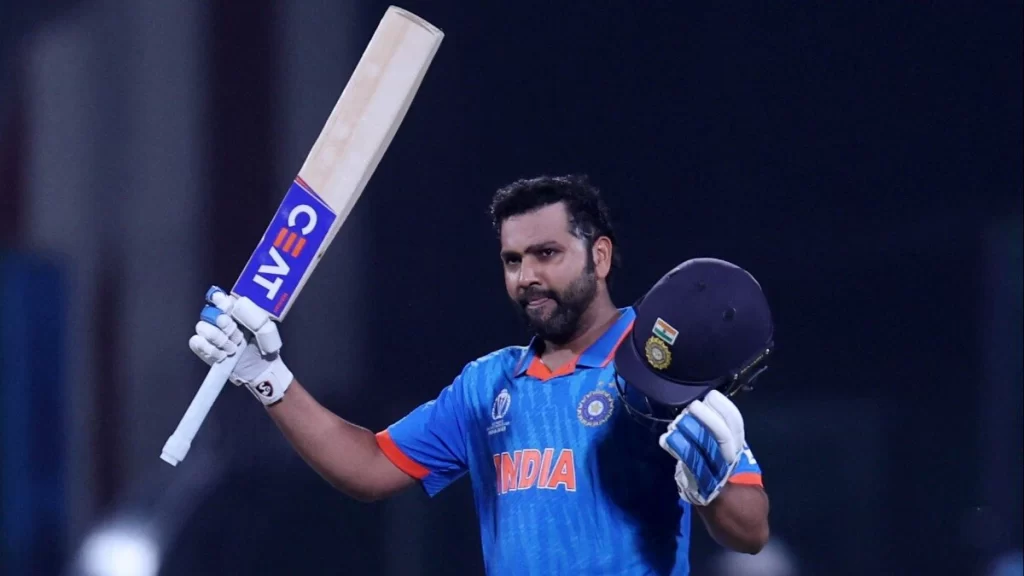Did Rohit Sharma Break Rules Against Afghanistan?: The double-Super Over in the 3rd T20I between India and Afghanistan was historic in more ways than one. Not only because it is the first case of this happening in international cricket, but also how a brilliant batting performance by Afghanistan brought the match to that point in the first place.
But another thing that was heavily talked about in this match was how Rohit Sharma left the field before the final ball in the first Super Over and was considered retired out, but then again came out to bat in the second Super Over.
Rohit left the field because it was the final ball of the Super Over and he was on the non-striker’s end. India needed two balls of the last ball, so Rohit replaced himself with Rinku Singh, who is a faster runner. This move paid off as India took a single off that ball and sent the match into the second Super Over.

Did Rohit Sharma Break Rules Against Afghanistan: What Do ICC Laws Say About Being Retired Out?
Actually, according to MCC rules and ICC playing conditions, “any batsman dismissed in any previous Super Over shall be ineligible to bat in any subsequent Super Over.” This simply means that if a batter gets out in a Super Over, he cannot come out to bat if there is another Super Over.
This raises the question, did Rohit Sharma break any rules when he came out to bat in the second Super Over after going out of the field in the first?
Before that, let’s see what the coaches of both teams had to say about this tactic. Following the match, Indian head coach Rahul Dravid called it a ‘last minute call’ and compared it to the time Ravichandran Ashwin did a similar thing for the Rajasthan Royals in the IPL.
Check Out:
- India vs England 1st Test Announced Squad
- Did Rohit Sharma Break Rules Against Afghanistan?
- Rohit Sharma Record-Breaking 5th T20I Century
“Taking himself out was Ashwin-level thinking,” said Rahul Dravid about Rohit Sharma’s decision to replace himself with Rinku Singh.
The Afghani batting coach Jonathan Trot, on the other hand, claimed that he was not aware of the specifics of such a case, as the second Super Over is still relatively a very new thing for international cricket.
“Has there ever been two Super Overs? That’s what I am trying to say. It’s sort of like a new… we keep setting these new sort of rules. What I am trying to say is we kept testing the rules, we kept testing the guidelines,” he said.
In the MCC’s Laws of Cricket, Law 25.4.2 states that if a batter is hurt or ill while batting and goes off the field because of it, they can resume their innings. But Law 25.4.3 states that if a batter leaves for any reason other than those stated above can only resume if the opposition captain allows for it. If they do not return to the pitch, they are considered ‘Retired – Out’.
Rohit Sharma never took back to the pitch in that first Super Over, which according to the laws will make him ‘Retired – Out’. Does that mean that the Hitman should not have been allowed to bat in the second Super Over, in which he played a crucial role?
It is clear that many parts of this new rule are still covered in grey and ICC will have to cement the rules in the future. Jonathan Trot had the best opinion on this scenario when he said –
“But those sort of things will be explained… because it has happened, these things will be explained and done in writing in the future. If those are the rules, that’s great. I just think we had a good game, and I don’t think that should be the talking point.”
Check Out:
- Did Rohit Sharma Break Rules Against Afghanistan?
- India vs England 1st Tet Announced Squads
- What Do ICC Laws Say About Being Retired Out?
Get the latest T20 World Cup 2024 Updates, Dates, Fixtures, Venues & T20 World Cup Team updates along with Latest Player News at IceCric.News and Follow for Live Updates – Twitter, Facebook & Instagram.




